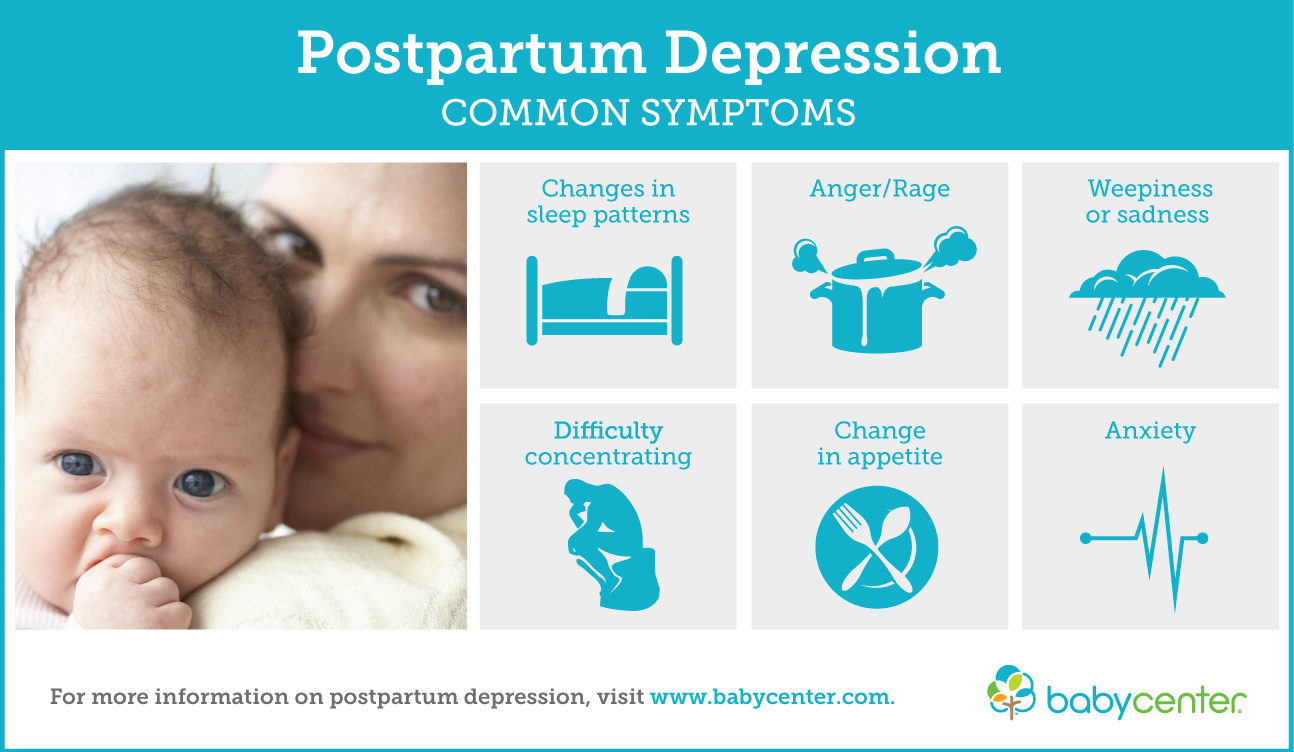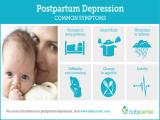BABYCENTER REVEALS FINDINGS OF NEW POSTPARTUM DEPRESSION STUDY
More Than 20 Percent of Moms Experience PPD; 40 Percent Not Seeking Help Due to Feelings of Embarrassment and Guilt
“This study revealed serious findings that need to be addressed,” says Linda Murray, BabyCenter Global Editor in Chief. “Depression is dangerous for women and their babies, and untreated depression can become worse and lead to other complications. Depression affects people from all walks of life, but new moms are particularly susceptible given the stress of becoming a parent, lack of sleep, and hormonal changes. We want moms to understand that seeking help for PPD isn’t something to be embarrassed or ashamed about; in fact, it’s one of the most important things they can do for the well-being of their babies.”
Who is most at risk?
Some degree of emotional vulnerability is natural and expected after childbirth, but some women are more likely than others to experience PPD. Risk factors include:
- Personal or family history of depression or anxiety
- Unplanned pregnancy
- Unsupportive spouse or partner
- Marital difficulties
- Financial problems
- Recent separation or divorce
- Serious life change such as a big move or loss of a job
- Severe premenstrual syndrome
- Obstetric complications
- Early childhood trauma or a history of abuse
- Fertility struggles
- Perfectionist personalities
“It strikes me as amazing that we see a woman every week during her pregnancy, but once the baby is out and she has to deal with her hormones going wild, sleep deprivation, and a brand-new crying being, we say, ‘Bye! See you in six weeks.’ This fourth trimester has been completely neglected,” says Dr. Alison Stuebe, associate professor of maternal-fetal medicine, University of North Carolina School of Medicine, and a member of the Society for Maternal-Fetal Medicine. “In the U.S., there are some pediatricians who manage to check in with Mom at well-baby visits to see if she’s coming unraveled, but that's difficult to do in an information-packed 15-minute encounter. The current state of affairs is that Mom is pretty much on her own. We need continuity of care that’s integrated, where someone Mom has already met and who knows her, can follow up, whether with a phone call or home visit.”
The signs and symptoms of PPD
Many people equate postpartum depression with feelings of sadness, but symptoms can be much broader and include:
- Changes in sleep patterns
- Anger
- Weepiness or sadness that persists all day
- Diminished interest in almost all activities, including sex
- Difficulty concentrating
- Change in appetite
- Anxiety
- Intrusive worries or scary thoughts
- Moodiness and irritability
- Excessive guilt
- Panic attacks
- Suicidal thoughts
To provide moms with more information concerning whether they should discuss PPD with their physician, BabyCenter created an online quiz based on the Edinburgh Postnatal Depression scale.
In response to these findings and to lend support to the cause, BabyCenter is working with Katherine Stone, the founder of Postpartum Progress, which raises awareness, fights stigma, and provides peer support to women with maternal mental illness. Stone will blog regularly on BabyCenter to shed additional light on PPD and remind new and expecting moms that there is no shame in feelings of anxiety or depression.
“The biggest thing for women to know about PPD is that it’s not one-size-fits-all,” says Stone. “Some women experience multiple symptoms, while others may only experience one. If you have any feelings indicating something may be amiss, seek help.”
What can you do?
For those experiencing PPD, getting treated as soon as possible is crucial. Some other things to consider:
- It’s not all about the baby: Moms need to remember to take care of themselves, too. Developing proper nutrition, exercise, and sleep habits can go a long way. Mapping out ways to take breaks and find some downtime is also crucial.
- Talk it out: Two in 3 moms who notice PPD symptoms talk to their partner or spouse. It’s important to have honest conversations, especially with a partner and healthcare provider. Joining a support group, finding an online community, counseling, and calling a PPD helpline also help.
- Returning to work: Those surveyed said returning to work helped reduce their symptoms.
“I can’t stress enough that PPD is treatable, but only if moms ask for help,” says psychologist Susan Bartell. “It can be hard, but moms don’t need to be afraid to seek support during this difficult time. And it’s important for moms to remember that help comes in many forms ranging from friends who simply fold your laundry to therapy.”
For more information about PPD, and what new moms can do about it, visit: https://www.babycenter.com/postpartum-depression.
About BabyCenter® LLC
BabyCenter® is the voice of the 21st Century Mom® and modern motherhood. It’s the number one pregnancy and parenting digital destination worldwide, reaching more than 40 million moms monthly in 11 languages across 14 owned and operated properties from Australia to India to China. In the United States, 7 in 10 babies born last year were BabyCenter babies. BabyCenter is the world’s partner in parenting, providing moms everywhere with trusted advice from hundreds of experts around the globe, friendship with other moms like them, and support that’s remarkably right at every stage of their child’s development. BabyCenter also works with some of the world’s most prominent brands and institutions to provide life-stage marketing solutions and a direct line to highly engaged moms. BabyCenter established a Global Giving Program and partners with esteemed organizations to help make motherhood safer for all women. BabyCenter is a member of the Johnson & Johnson family of companies.
###
Media Contact:
Nicole Centinaro / Sue Murphy
Coyne Public Relations
973-588-2000




